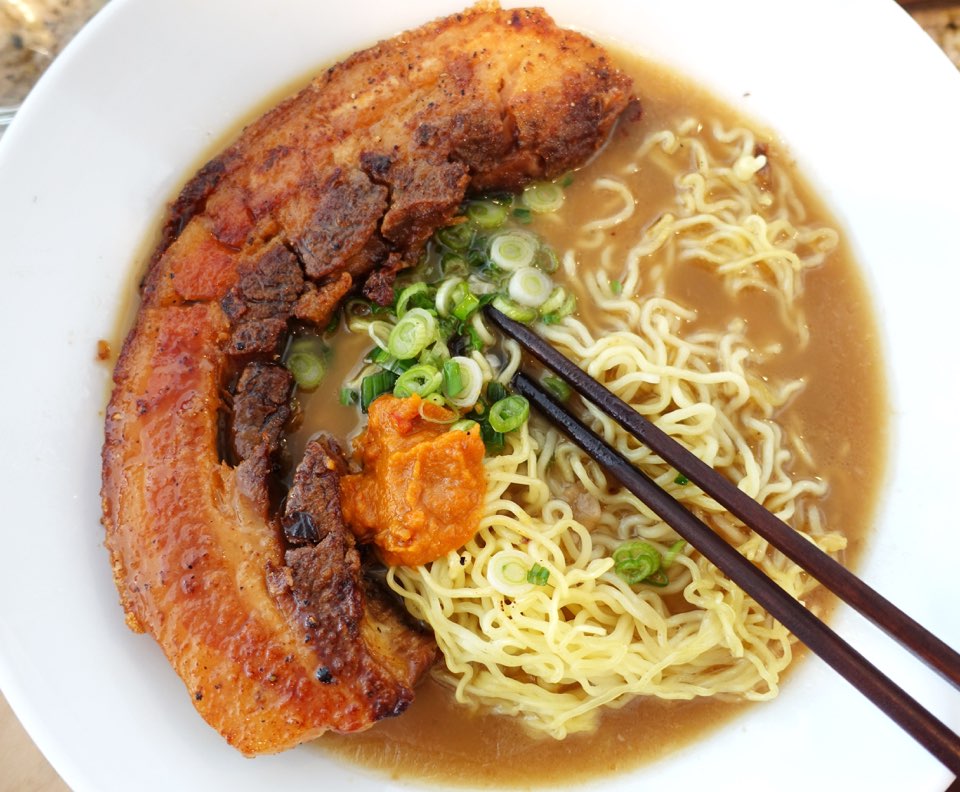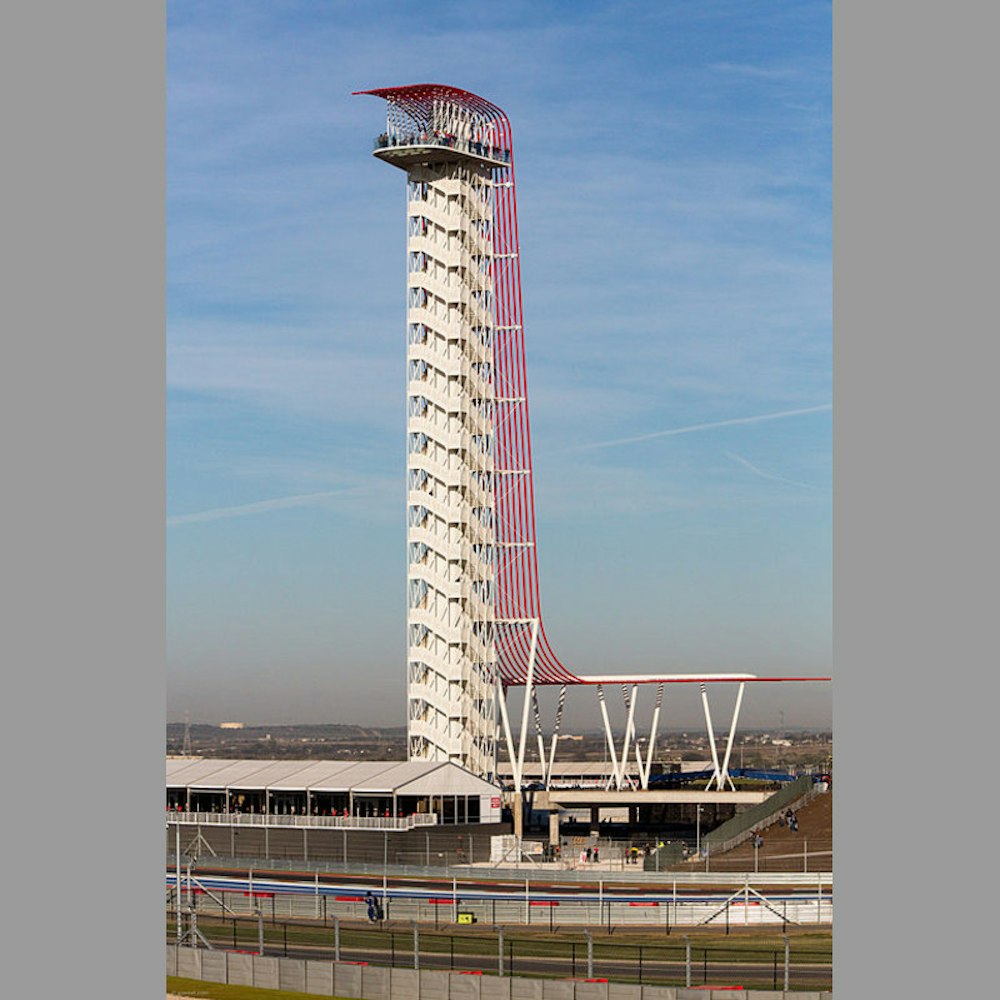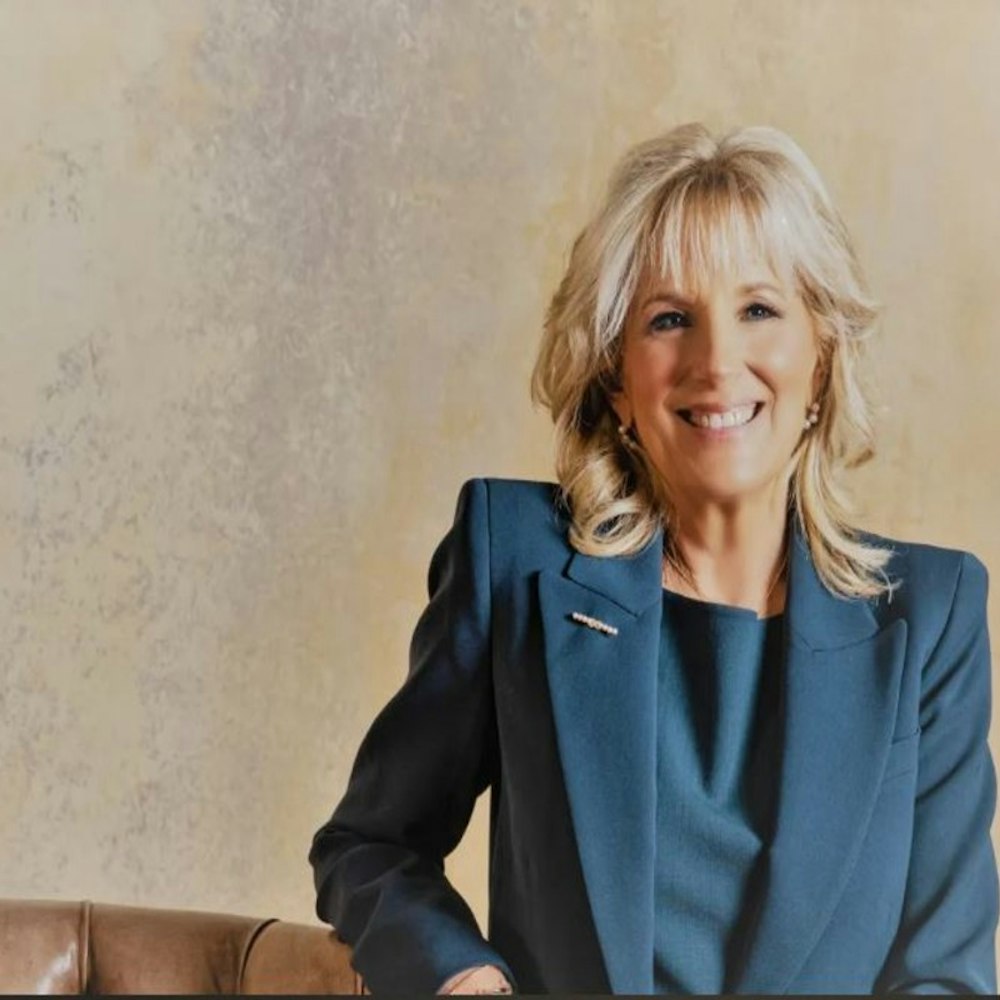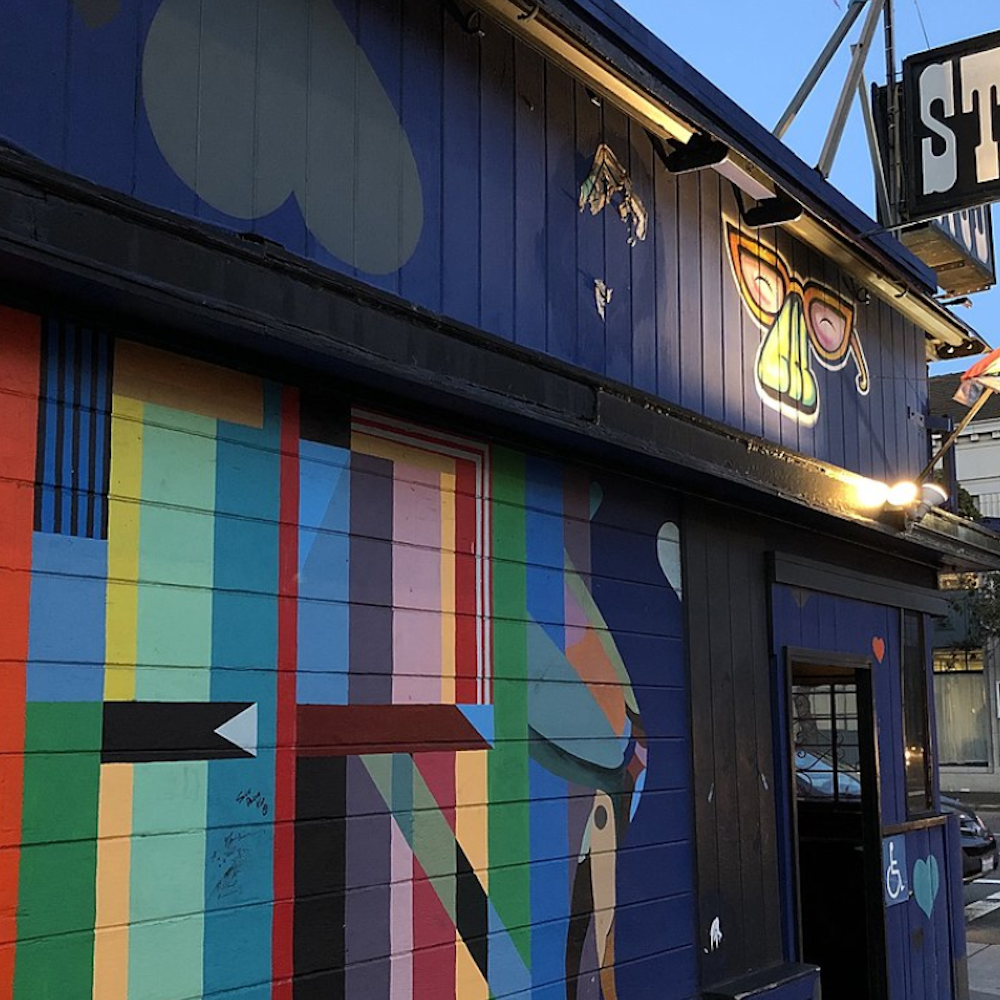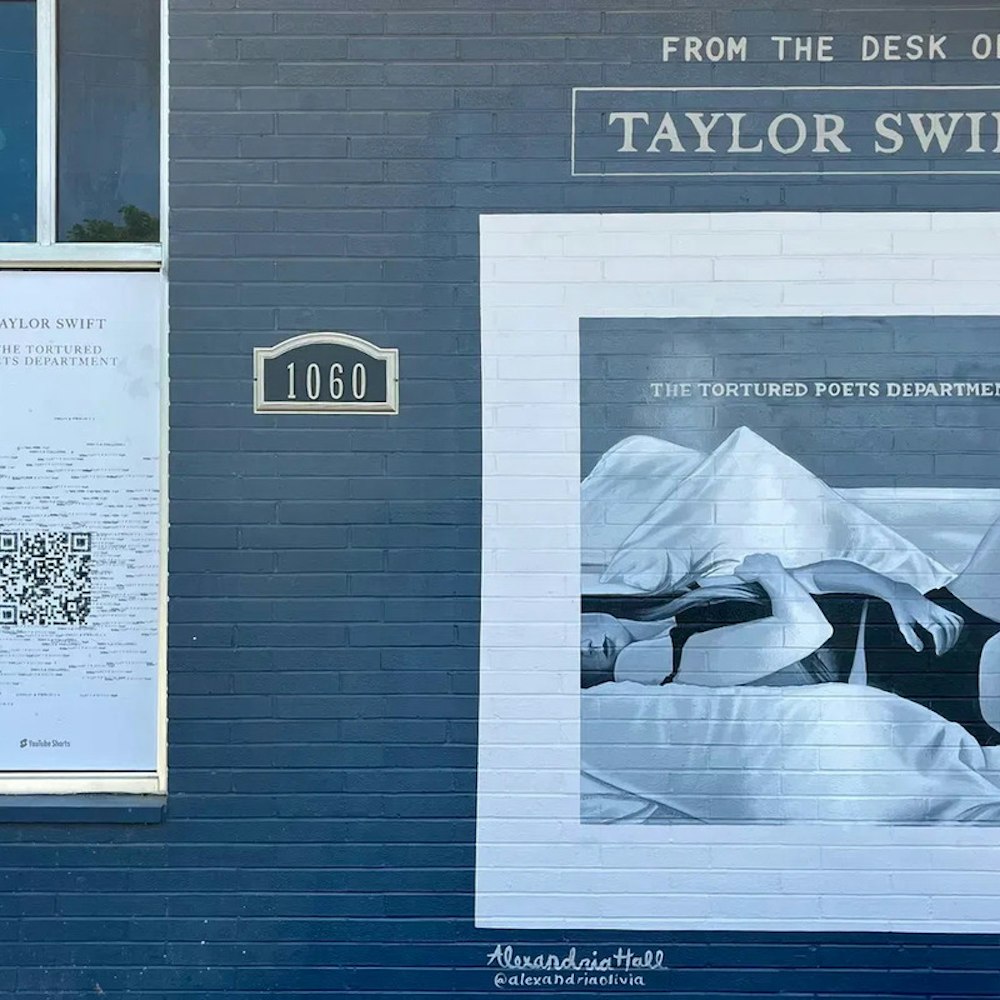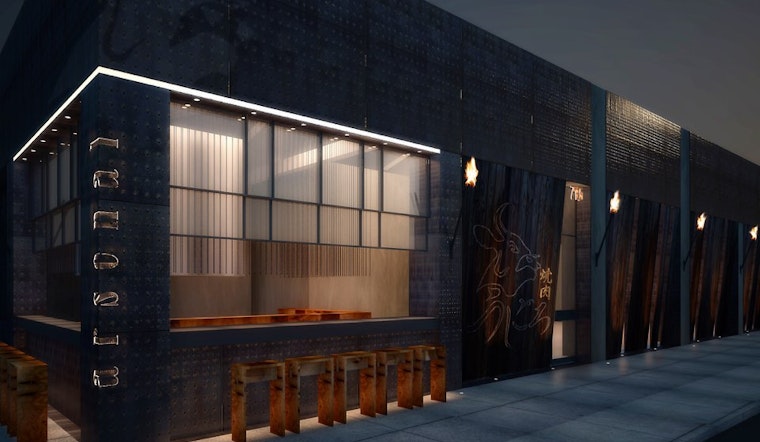
Late last year, we shared some exciting news for neighborhood carnivores. Erik Sun, a Los Angeles native known for crafting high-end meals using whole animals he's caught himself—on both land and sea—is opening two new restaurants in SoMa this year.
To learn more about the two forthcoming concepts, Arsenal and The Hunted, we recently caught up with the hunter/gatherer/chef and his business partner Kenneth Chung—who's on a parallel mission to get sustainably-raised whole beasts straight to San Franciscan's homes.
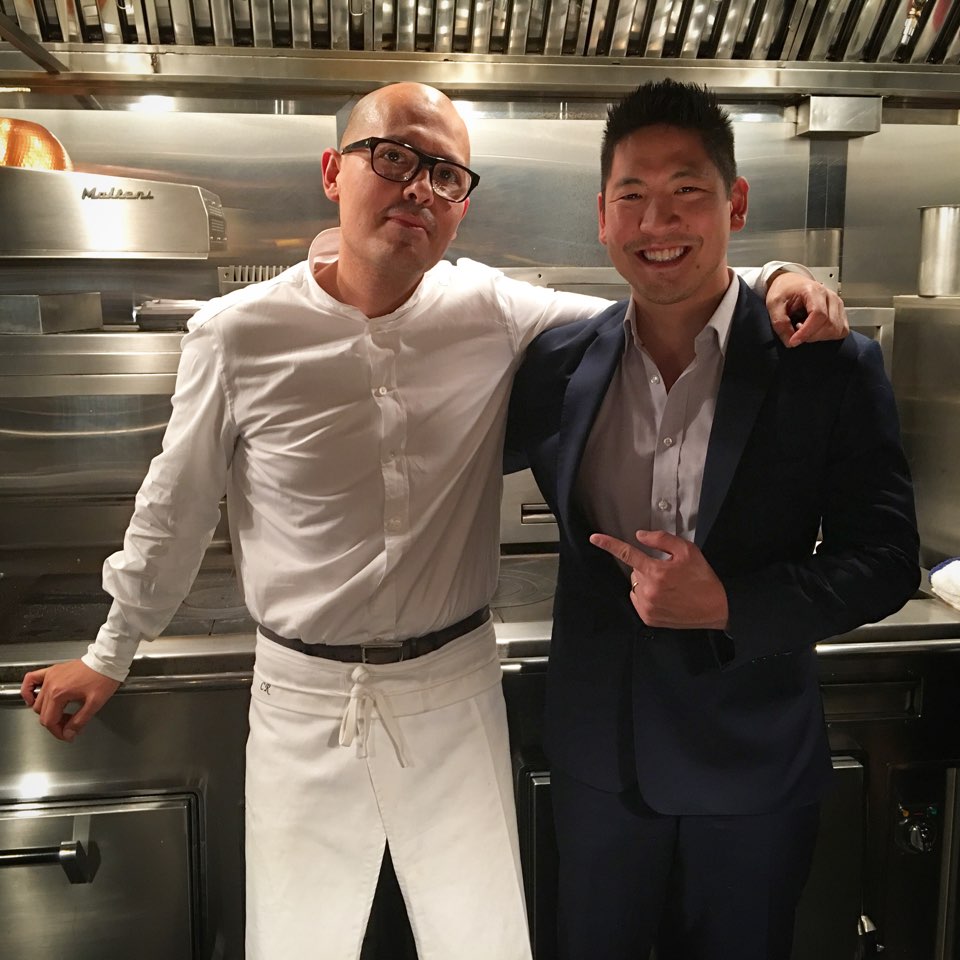 Erik Sun (right) with chef Cesar Ramirez of Chef's Table at Brooklyn Fare in NYC, Sun's "favorite restaurant in the world."
Erik Sun (right) with chef Cesar Ramirez of Chef's Table at Brooklyn Fare in NYC, Sun's "favorite restaurant in the world."
The 'Pursuit of Food'
To best understand what Sun and Chung are up to, it's important to start with Sun's philosophy: the 'Pursuit of Food.'
In short, Sun says its all about showcasing the entire process of preparing a carnivorous meal—suiting up for a day's hunt/fish, showing off the kill, butchering and cooking the meat/fish, and finally plating the dish. Without the full context, one can't fully respect the life that was taken or the meal in front of them, no matter how beautiful it looks on their plate. Plus, with little to no insight into the animal's origins, it's easier to waste perfectly usable parts.
With that underlying principle, they're creating three different means of sharing the whole-animal experience with city dwellers.
Arsenal
Due out first is Arsenal, which Sun describes as a "whole animal Asian barbecue." By July, the 40 to 50 seat restaurant will be up and running in the former Showplace Caffè at the corner of Brannan and Harriet, just to the west of Sixth Street and the I-280 on-ramp.
Traditional Korean and Japanese barbecue restaurants generally source just a few common cuts of meat, usually frozen, and focus on quantity over quality, Sun said. But not Arsenal. While they won't have capacity to cook whole animals in-house, he does plan to purchase entire animals, then age and barbecue the cuts onsite.
"Everything is good on the animal as long as you take the time to respect it," he explained. "The most flavorful parts are just parts that nobody takes the time to deal with."
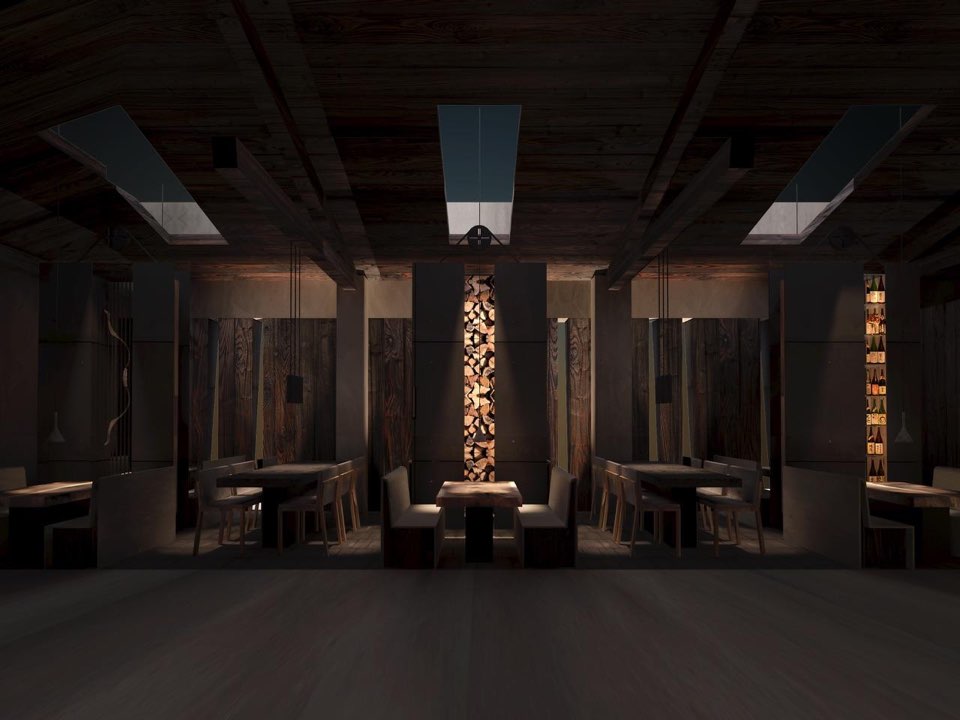 A rendering of the dining room at Arsenal.
A rendering of the dining room at Arsenal.
While Arsenal won't be able to serve game meat freshly caught by Sun himself, he's taking great care to source meat—primarily beef—from small, ethical farms he's intimately familiar with. Arsenal has also just received Kobe beef certification, joining just a handful of restaurants with this official designation, Sun said.
At lunch and during late-night service, Arsenal will become a noodle bar. Sun says he spent much of the winter exploring the cuisine throughout Asia, and is very excited about the deeply satisfying broths he's concocted.
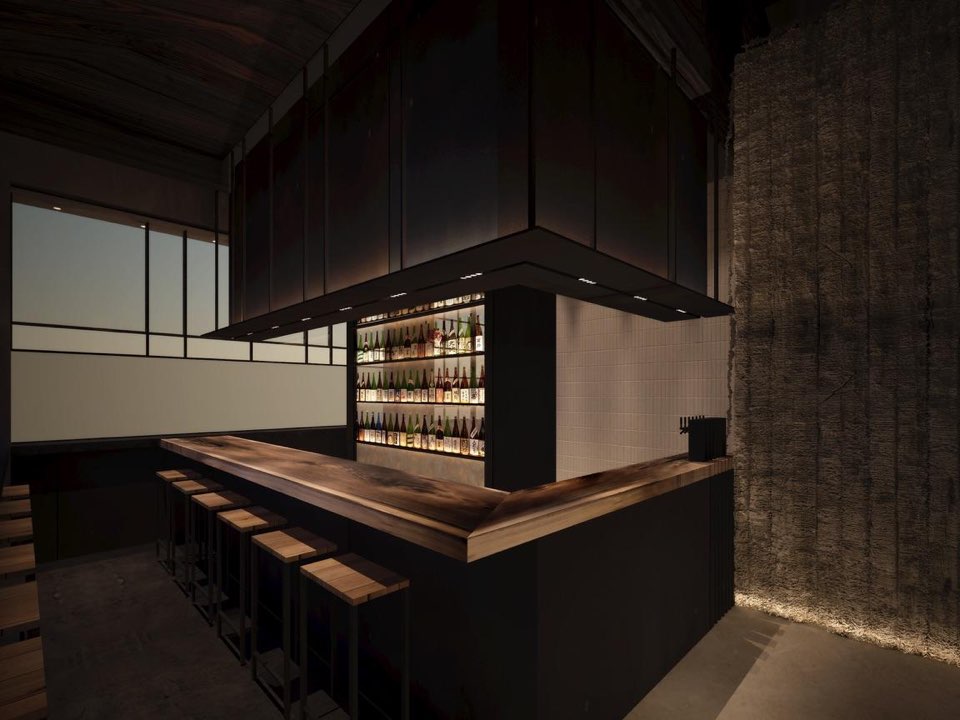 The noodle bar.
The noodle bar.
But don't expect traditional Japanese ramen. Plenty of other Bay Area restaurants are on that trend already, he said, so he'll be trying some new ideas. However, like traditional Japanese ramen houses, they will make their noodles, and everything else, from scratch in-house.
When it comes to pricing, Sun expects dinner to be in the "four dollar signs" range. (Yelp defines that as $61 and up.) It could be cut down to three, Sun said, by picking and choosing small bites and sides rather than springing for the full tasting-menu experience.
Overall prices at the noodle bar "won't be crazy," but one recipe he has in mind might end up being "the most expensive noodle bowl in America," he said.
The Hunted
In the fall, Sun plans to launch The Hunted in a 7,000-square-foot converted warehouse at 445 Harriet St., just around the corner from Arsenal.
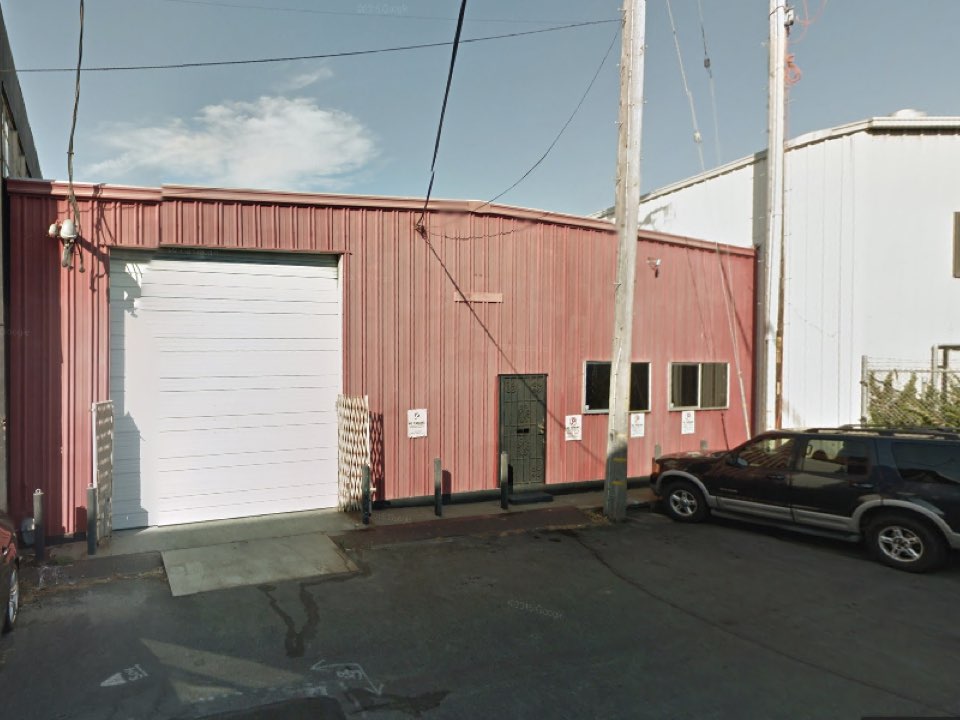 Photo: Google Maps
Photo: Google Maps
While The Hunted's concept is still under development, Sun said the space will be open for lunch and dinner, and the menu will be "elevated rustic" with an Italian slant. Everything will be "...flavors I'm familiar with," he added, referring to his experience with Gino Angelini, one of LA's most respected Italian chefs, as well as at Bestia.
More specifically, diners can expect a nose-to-tail tasting experience, including red meat and seafood, along with pastas and flavorful sauces. One item he's currently devising is jambalaya, complete with fresh lobster and homemade sausage.
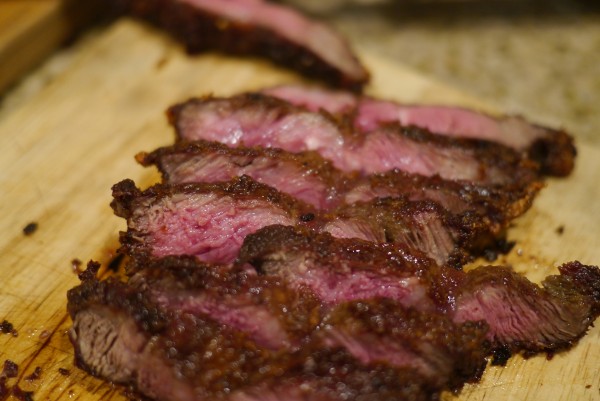 Slices of tonkatsu-style double-fried wagyu beef from Japan. (Photo: The Pursuit of Food)
Slices of tonkatsu-style double-fried wagyu beef from Japan. (Photo: The Pursuit of Food)
He's also considering building a wine cellar in the basement and a roof deck before the restaurant opens this fall.
Meat Dorks
While Sun builds out Arsenal and The Hunted, his business partner Kenneth Chung is busy preparing to launch Meat Dorks, a service that will soon deliver freshly harvested, responsibly raised cuts of meat to consumers' doors.
Chung and Sun first met in college, and reconnected after Chung launched a similar meat delivery service, Bos Creek, three years ago.
Like their restaurants, the goal of Meat Dorks is to make it easier for people to enjoy responsibly raised meat at affordable prices, Chung said, while showcasing the value of the entire animal.
The initial launch, starting with a Kickstarter campaign this April or May, will focus on San Francisco. They hope to raise $20,000 through crowdfunding and begin shipping weekly meat boxes locally within 60-90 days. They'll then spread to Manhattan, before servicing the 48 continental states.
What sets Meat Dorks apart from other meat clubs is a focus on freshness and transparency, Chung said. They've traveled to farms all over the world—including Japan, Italy and the midwest—and know the ins and outs of responsible meat raising and packing.
Most meat clubs are a way to monetize whatever farmers weren't able to sell at farmer's markets throughout the summer, Chung explained. They purchase their cuts in bulk at a discount, and are legally allowed to freeze their stock for up to a year. They then sell monthly boxes by the pound, not according to how much actual meat is enclosed. Consumers have no control over what comes in their deliveries.
Meat Dorks, however, will harvest the meat as orders are placed, Chung said. And the weekly program will make storing and meal planning easier for customers. "It's easier to plan for one week than one month."
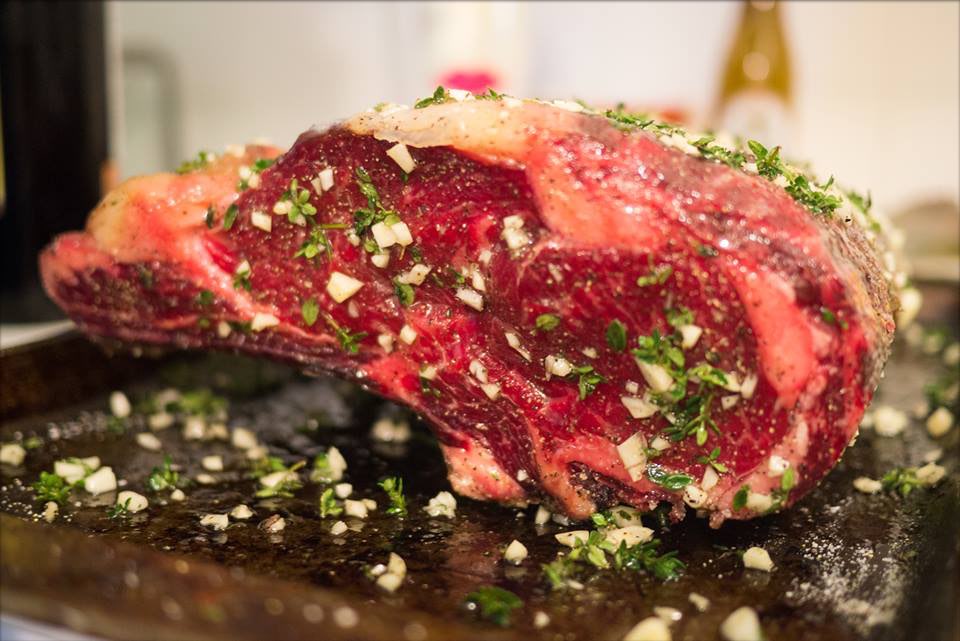 Photo: Meat Dorks/Facebook
Photo: Meat Dorks/Facebook
Details on the animals—including where the chickens, bison, hogs and steer were raised, and what they were fed—will be easily accessible on the Meat Dorks website. That's information that should always be shared with consumers, but generally isn't, Chung argues.
While most city dwellers don't have the space to store a whole animal in their freezer, Chung says they're still keen on sharing an aspect of the whole-animal experience with Meat Dorks members. After a member's third month with the service, Chung plans to add one lesser-known cut in each of their boxes moving forward, along with information on where the animal was raised, the specific part of the animal the cut came from, and ways to use it in a meal. By the end of one year with the service, each member will have tasted an entire animal—nose to tail. Alternatively, members can graduate to a subscription where they receive a whole animal once a month.
The focus on delivering responsible meals will extend to packaging as well. "What's the point of eating grass-fed meat if it's delivered in a styrofoam box?" Chung said.
As for pricing, Chung says Meat Dorks will be 20 percent cheaper than its competitors. Other meat clubs generally charge $129 for six- to 10-pound shipments; Meat Dorks' weekly program starts at $90 for eight pounds of meat, and members can add an additional four pounds for $20.
To keep up with Meat Dorks, sign up to be notified as soon as the Kickstarter campaign goes live. Those eager to get the first taste of Arsenal should note that in exchange for a donation of $2,000-$3,000, donors will receive a nose-to-tail dining experience for two or four at the restaurant's chef's table. $5,000 gets you a private party for 20 at the restaurant.
We'll be sure to keep you updated on the progress of the three projects as they arrive.
